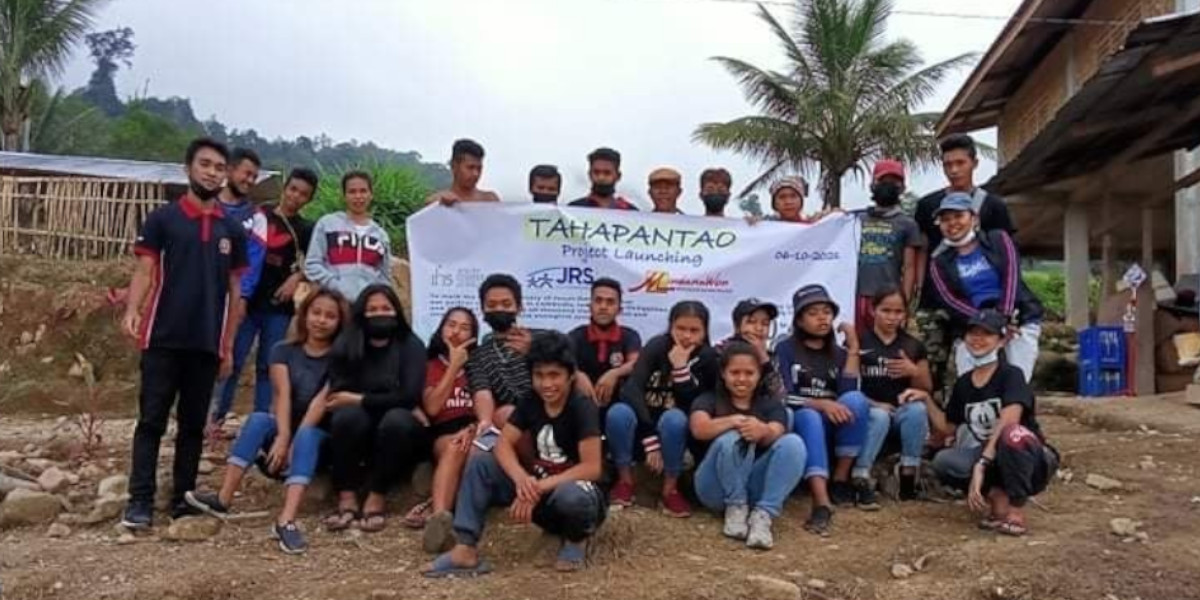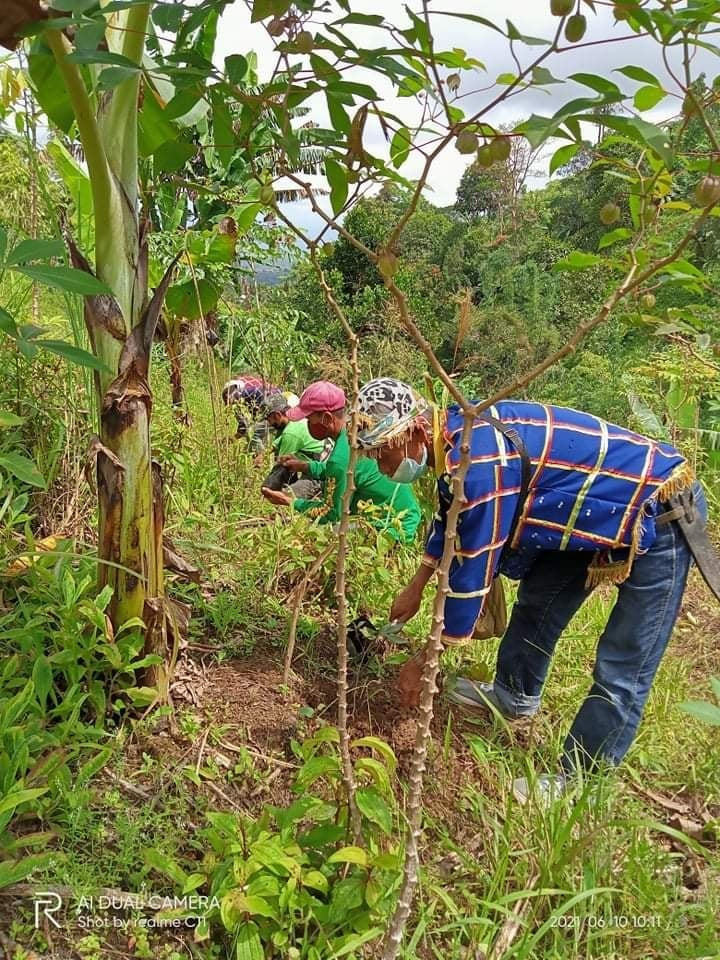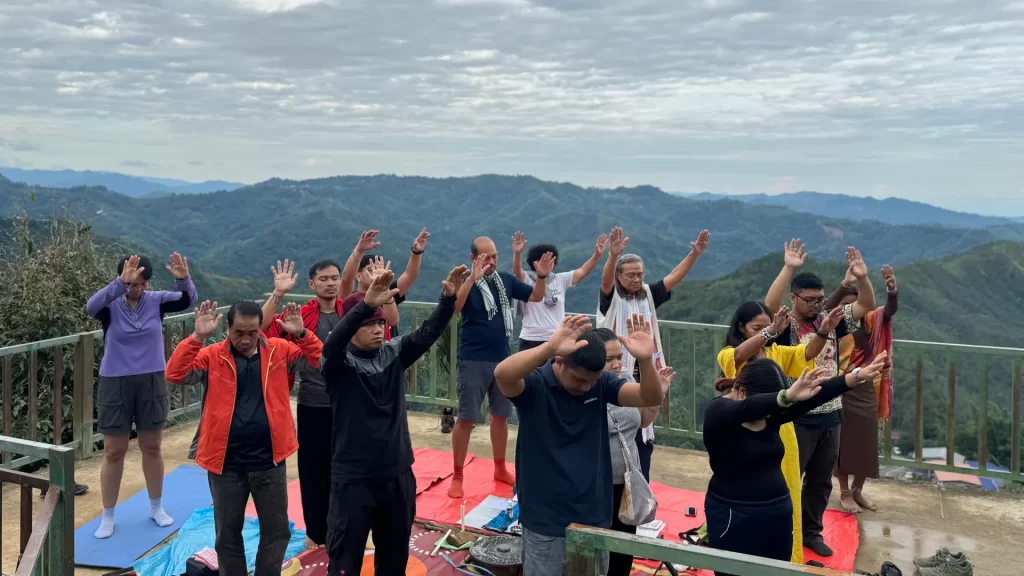

“As young people, it is important for us to be united because we will become the next generation of leaders,” said tribal youth organisation President Marlon E Apan.
Apan and his group belong to the Monuvu tribe, a subgroup of the Manobo tribe, one of the indigenous groups in Mindanao.
As indigenous peoples see their land as sacred, the tribal leaders conducted a ritual before starting the tree planting activity. This was followed by an orientation on the proper way of planting trees.
The youth have committed not only to planting trees but also in ensuring that they grow into canopies. They initiated the replanting of 120 seedlings to make up for the 2 per cent mortality rate of the newly planted trees. They also led in weed control activities and in fertiliser application to unhealthy trees and saplings. These maintenance activities will be done every two weeks on rotation among the various groups involved.
“We are grateful for this project,” said Rogie Angin Emban, a member of the tribal youth group. “We learned about our role as youth leaders, especially in terms of preserving and protecting our ancestral domain.”
JRS Asia Pacific’s 40 for 40 project is a yearlong environmental campaign that aims to increase cultural rootedness and strengthen marginal communities whose survival depends on the sustainability of their natural resources. The project is in collaboration with the Reconciliation with Creation Network, Jesuit Companions in Indigenous Ministry, and the Young Adult Ministry of the Jesuit Conference of Asia Pacific.
To know more about the project, click here.






